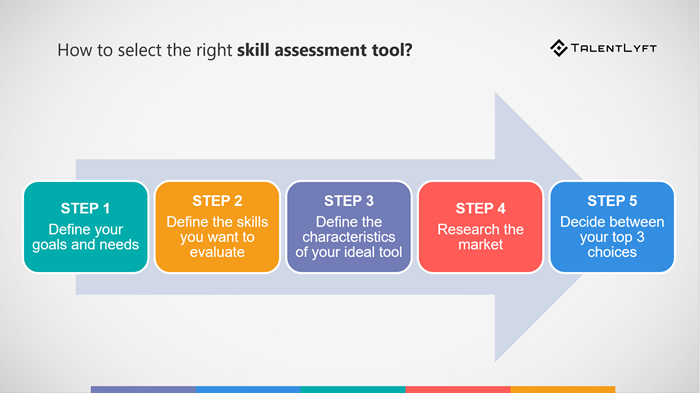Skills Assessment
What is Skills Assessment
Definition:
A skills assessment is a systematic process used to evaluate an individual’s competencies, knowledge, abilities, and proficiency in specific areas or disciplines. It is designed to measure a person’s aptitude, technical skills, soft skills, and cognitive abilities related to a particular job role, educational program, or professional certification.
Analogy:
Think of a skills assessment as a diagnostic test for talents and capabilities, akin to a medical check-up that assesses various aspects of health and wellness. Just as a medical examination helps identify areas of improvement or potential risks, a skills assessment evaluates an individual’s strengths and areas for development in relation to a specific skill set or job requirement.
Further Description:
Skills assessments encompass a variety of methods and tools tailored to different contexts, including:
Technical Proficiency Tests: Assessments that evaluate an individual’s mastery of technical skills relevant to a particular job or industry, such as programming languages, software applications, or machinery operation.
Cognitive Aptitude Tests: Tests designed to measure cognitive abilities such as problem-solving, critical thinking, logical reasoning, and numerical or verbal aptitude.
Behavioral Assessments: Evaluations that examine an individual’s behavioral traits, personality characteristics, communication style, teamwork skills, and emotional intelligence.
Job Simulations: Practical exercises or simulations that replicate real-world tasks or scenarios to assess an individual’s ability to perform job-related duties effectively.
Performance Reviews: Ongoing evaluations conducted by employers or educational institutions to assess an individual’s progress, achievements, and areas for improvement over time.
Why is Skills Assessment Important?
Skills assessments serve several critical purposes in education, recruitment, and professional development:
Recruitment and Selection: Employers use skills assessments to identify candidates who possess the necessary qualifications and competencies for specific job roles, ensuring a better fit between candidates and positions.
Training and Development: Skills assessments help identify areas where individuals may need additional training, mentoring, or support to enhance their capabilities and performance.
Academic Evaluation: Educational institutions use skills assessments to measure students’ academic progress, identify learning gaps, and tailor instruction to meet individual learning needs.
Certification and Credentialing: Professional organizations administer skills assessments to certify individuals’ expertise in specific fields, granting credentials that demonstrate competency and proficiency.
Examples and Applications:
- A software company administers programming tests to assess candidates’ coding skills and problem-solving abilities during the hiring process.
- A university conducts language proficiency tests to evaluate international students’ English language skills before admission to academic programs.
- A healthcare organization utilizes behavioral assessments to evaluate candidates’ interpersonal skills and empathy levels for patient care roles.
Key Takeaways:
- Skills assessment is a systematic process used to evaluate individuals’ competencies, knowledge, abilities, and proficiency in specific areas.
- Methods include technical proficiency tests, cognitive aptitude tests, behavioral assessments, job simulations, and performance reviews.
- Skills assessments are important for recruitment, training, academic evaluation, and certification purposes.
- Examples include programming tests for software engineers, language proficiency tests for international students, and behavioral assessments for healthcare professionals.
Table of Contents





